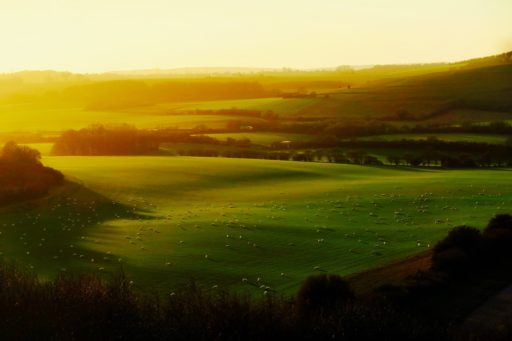I’ve been thinking about joy in writing. I believe I know by now what it feels like for the writer to be working joyfully. Can you detect it in someone else’s writing? I think so, and I think I know the first time I saw it on the page, and knew that that was what I saw.
The summer I was thirteen, my father’s work took our whole family to the Netherlands for several months. I was already by that time a devotee of European history. But this was different. Now I was surrounded by foreign languages for the first time, and I was actually in this foreign world, with its castles, cathedrals, and a countryside very different from what I had known where I grew up in New England and southwest Ohio. It was not just an exciting time for me; it was revelatory. But the place was not all.
I had with me numerous books, history and biographies of European figures—and one fiction hardback. So far my experience with fiction had been mostly confined to genre fantasy, and this book appeared to be of the same ilk. The cover showed an adolescent boy, perhaps only a few years older than I was then, holding a great sword flaming golden-red, and kings kneeling all around him. The volume was an omnibus edition of the English author Mary Stewart’s Merlin Trilogy, written in the 1970s, comprising The Crystal Cave, The Hollow Hills, and The Last Enchantment.
I knew already the story of Arthur and the Grail, but I had never before encountered that story as I would in Mary Stewart’s novels. For that matter, I have never since encountered the story quite as I did through Stewart’s writing—not anywhere in the Arthurian material, from the first glimpses of it in the Mabinogion through modern versions like T. H. White’s Once and Future King—a very beautiful version, that one, but finally anguished and elegiac, not joyful.
Stewart’s achievement has to do with joy, and the joy has to do with the place. Thanks to my father’s work and some generous English colleagues, we were able to venture to Britain that summer of 1995 when I first read the Merlin Trilogy, ranging through the West Country of England and up through Wales. So I actually read most of the trilogy in or very near the places where it is set. The effect on me was profound and immediate. I fell in love with Britain and the British: both the real and present, and the past and fantastical…to the extent one wants to make such a distinction.
It’s maybe not a distinction that mattered greatly to Mary Stewart. She handled the historical and source material deftly—and not too much. Merlin’s magic is not supercharged—these books are not what is called high fantasy—and very often Merlin, who narrates the trilogy, makes clear his magic is no more than lost Roman engineering, or a kind of earthy folk wisdom, though more awesome forces are at work as well. And yet, I would call the Merlin Trilogy one of the most religious or faith-filled literary works I have ever read. Now, true religion is love of place. What I am calling the joy of the Merlin Trilogy is the love of Britain, which is the secret heart of the fiction. The subtlety of the magic and the depth of Merlin’s sense of place and love for Britain—the joy and thrill of this fantasy—are perfectly displayed in this passage from the end of the first novel.
From this height I could see the whole town, tiny as a toy in the distance. The valley was sullen green in the March wind. The river curled, grey under the grey sky. A wagon was crossing the bridge. There was a point of colour where a standard flew over the fortress. A boat scudded down-river, its brown sails full of the wind. The hills, still in their winter purple, held the valley cupped as one might hold in one’s palms a globe of glass.…
The wind whipped water to my eyes, and the scene blurred. The crystal globe was cold in my hands. I gazed down into it. Small and perfect in the heart of the crystal lay the town with its bridge and moving river and the tiny, scudding ship. Round it the fields curved up and over, distorting in the curved crystal till fields, sky, river, clouds held the town with its scurrying people as leaves and sepals hold a bud before it breaks to flower. It seemed that the whole countryside, the whole of Wales, the whole of Britain could be held small and shining and safe between my hands, like something set in amber. I stared down at the land globed in crystal, and knew that this was what I had been born for. The time was here, and I must take it on trust.
The crystal globe melted out of my cupped hands, and was only a fistful of plants I had gathered, cold with rain. I let them fall, and put up the back of a hand to wipe the water from my eyes. The scene below me had changed; the wagon and the boat had gone; the town was still.
So much for the stereotypical Merlin, gazing into his crystal ball. Here, that ball is no magical talisman but the visionary man’s handful of wet herbs. Nor is his vision anything other than the mundane British world fifteen hundred years ago (the town is Maridunum, or Camarthen as it’s called now). This is the real magic of the books, and the romance. She was a fine writer of romance novels, Mary Stewart, one of the finest. The romance in the Merlin Trilogy is above all that of Merlin and Britain. And so is the religion.
Merlin is a deeply religious figure, not because of the wonders he works but because of the way he perceives the world. He reports his own great faith many times throughout the narrative, directly (as here) or through dialogue. He declares himself the agent of that which is unspeakably greater than himself. Here is his faith, as he is being summoned to London and the beginning of the chain of violent events which will lead to Arthur’s conception: “The time was here, and I must take it on trust.”
Trust and faith mean the same thing: deepest feeling, and the sense of a bond you did not choose or invent. Like my younger son, the other day, leaping from the top of a play set into my hands—and grinning while he did it. What does Merlin trust? His place in the world, meaning both where he is and the role that he and those he loves have to play. Thy kingdom come, thy will be done, on earth as it is in heaven. In Britain as it is in story. We trust that we, and all we love whether person or place, are part of a story beyond our own devising.
Jonathan Geltner lives in Ann Arbor MI with his wife and two sons. His translation of Paul Claudel’s Five Great Odes is available from Angelico Press and a novel, Absolute Music, is forthcoming from Slant. He writes more about the meeting of fantasy and fiction with theology, philosophy, music and the sense of place at betweentwomaps.com





